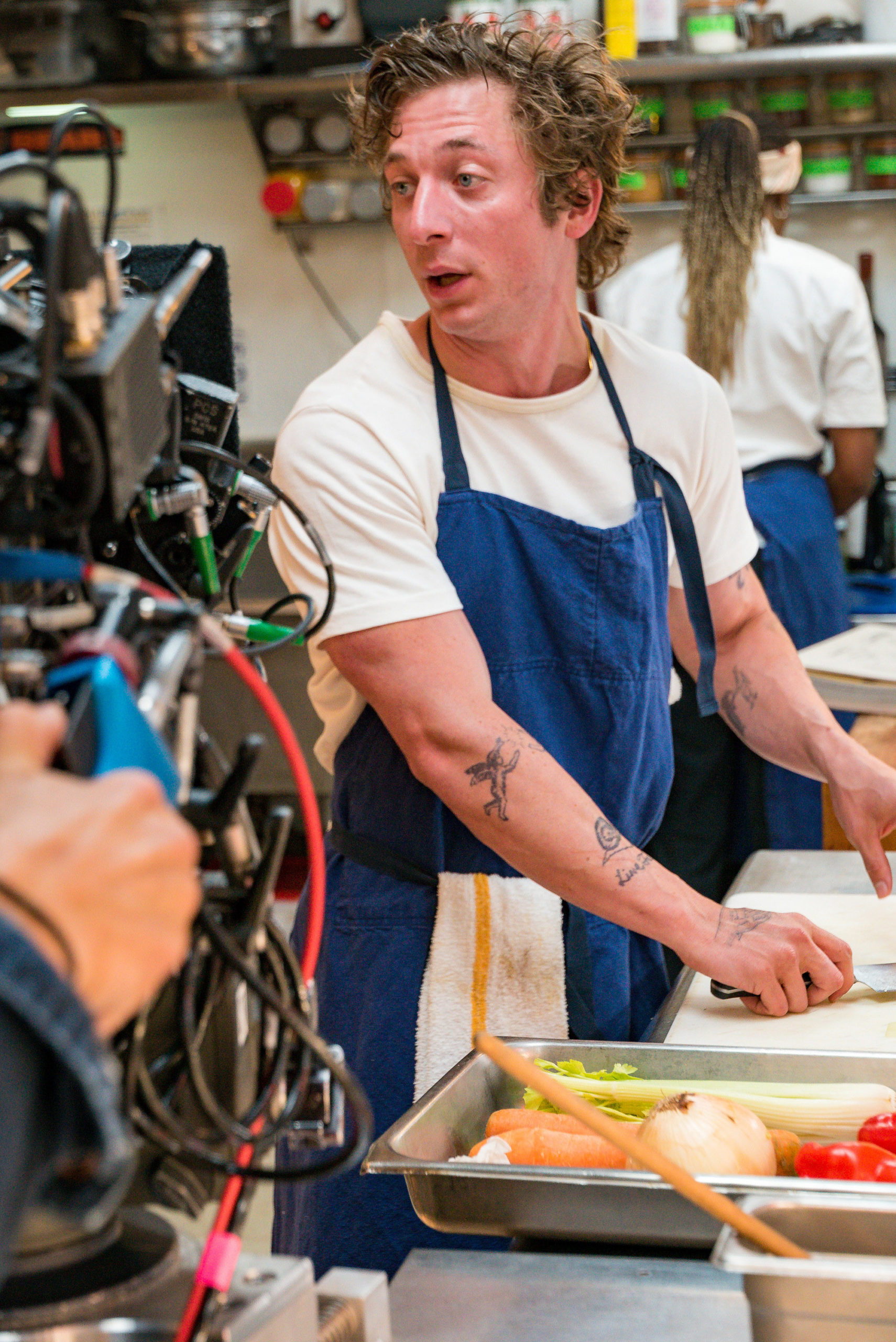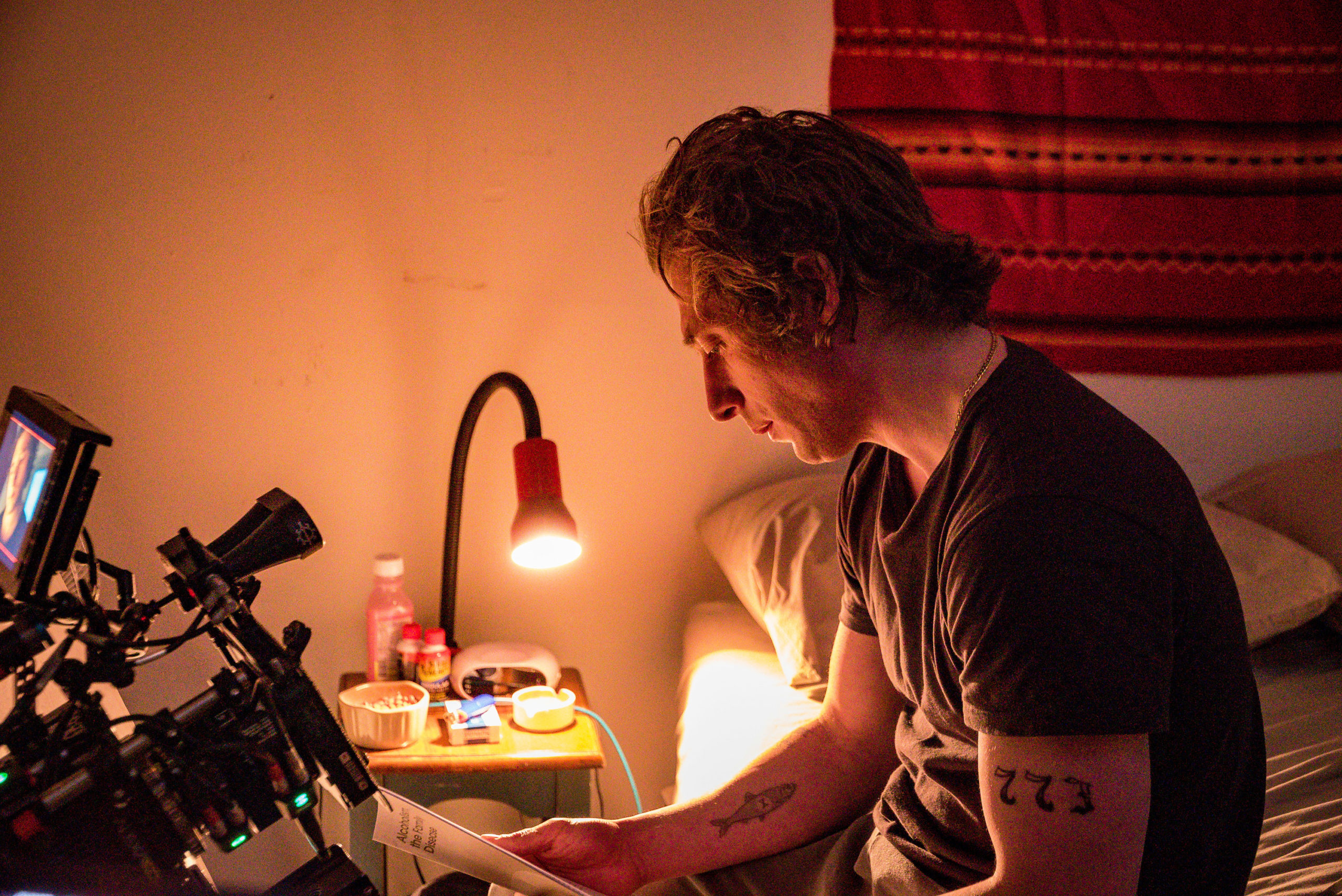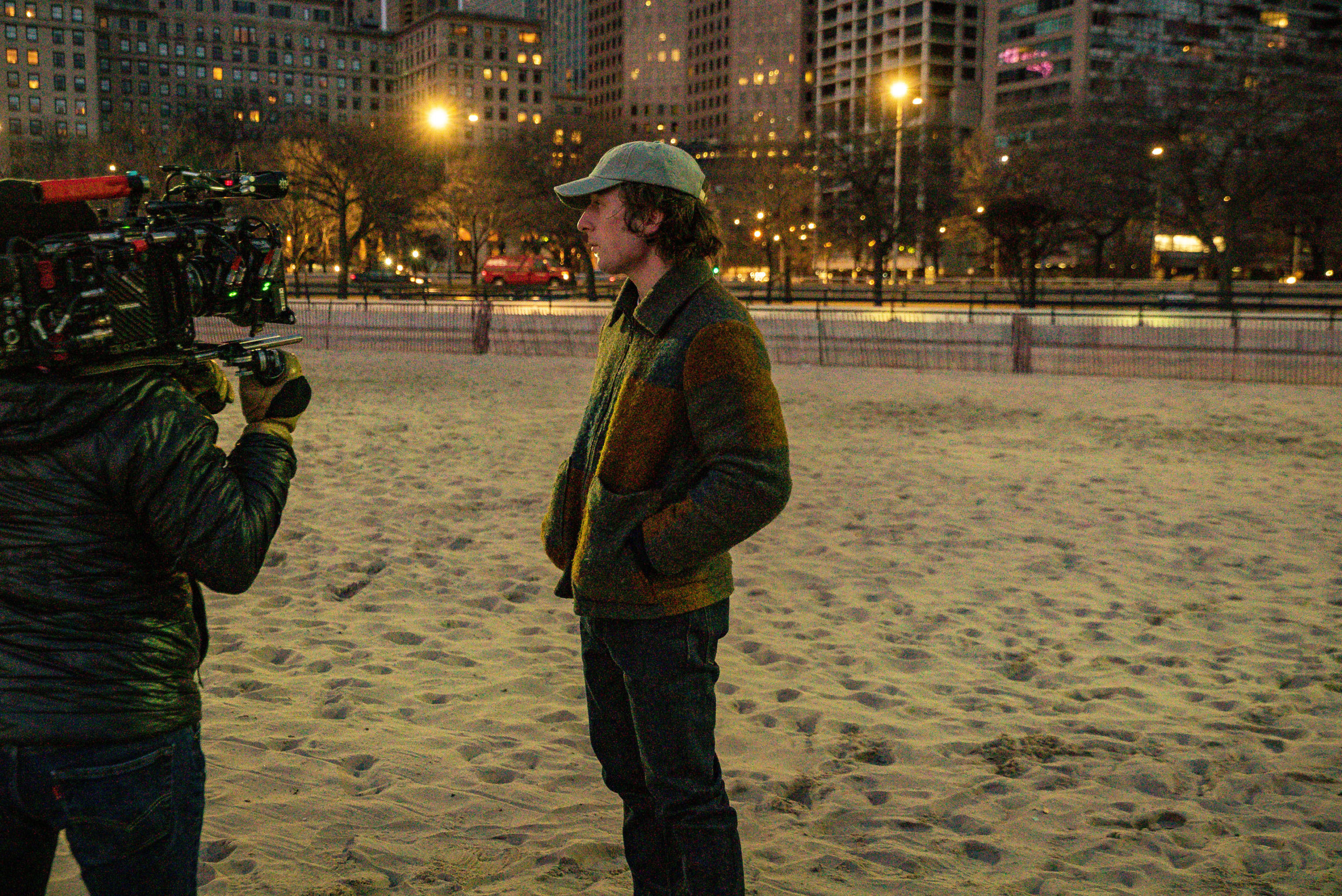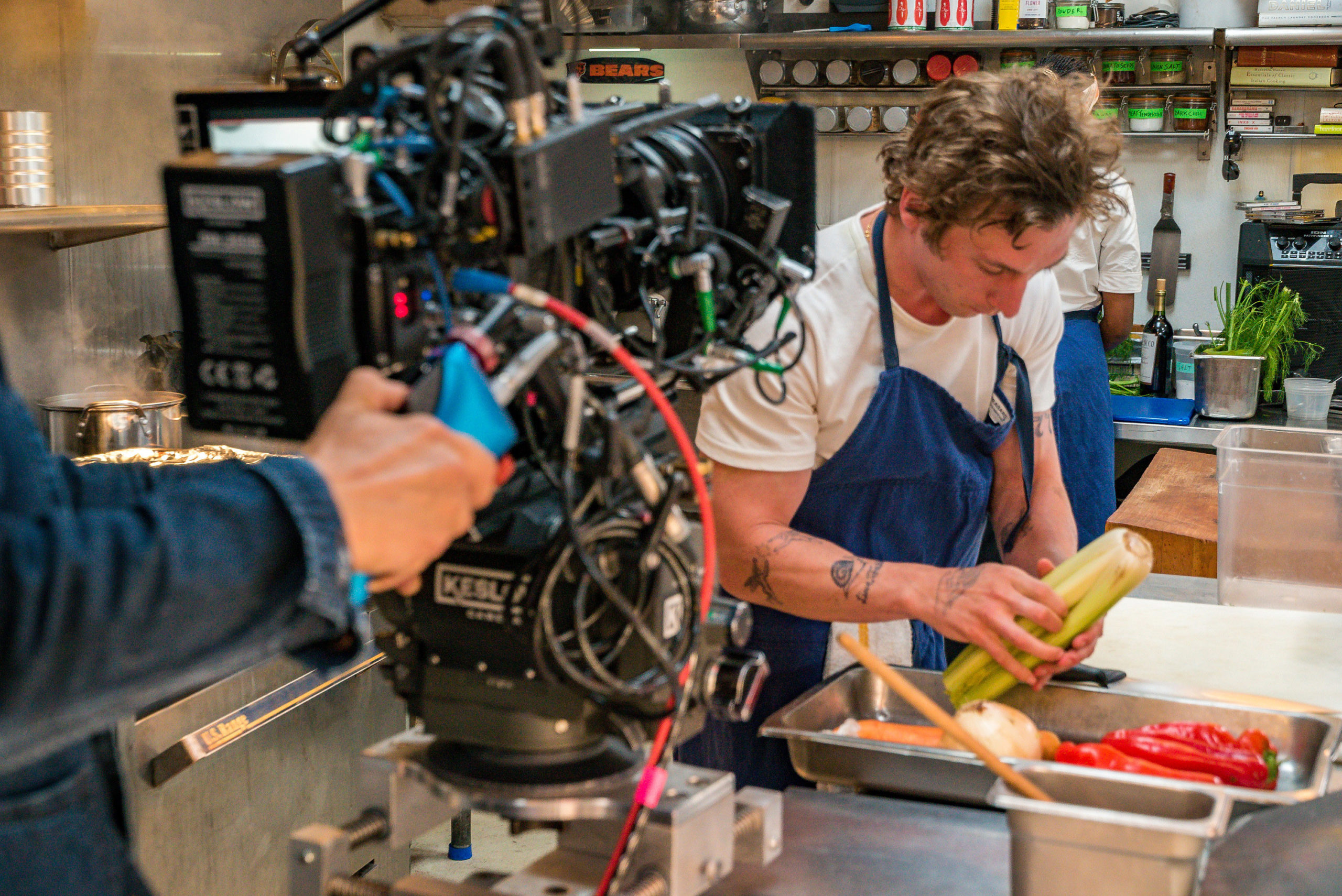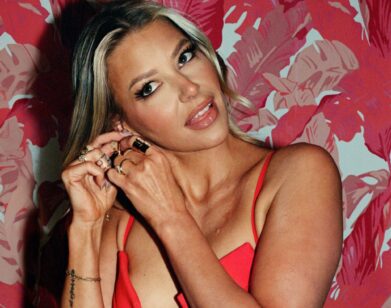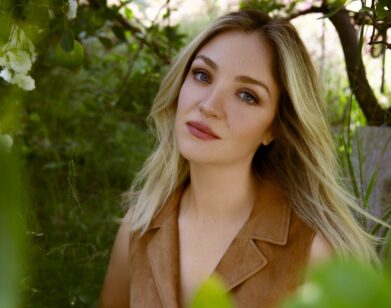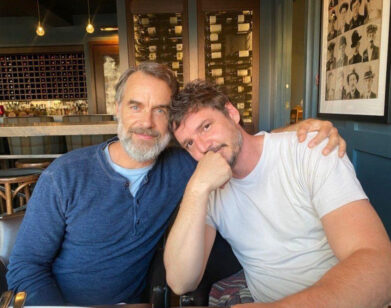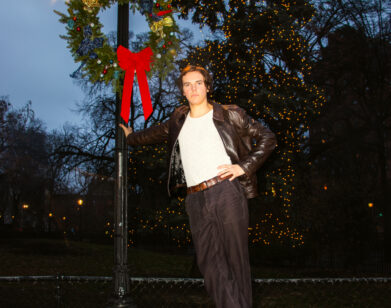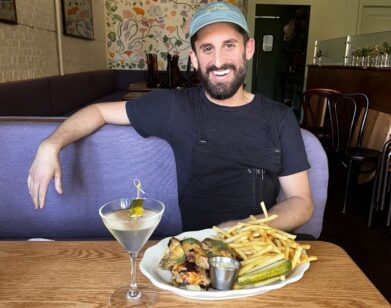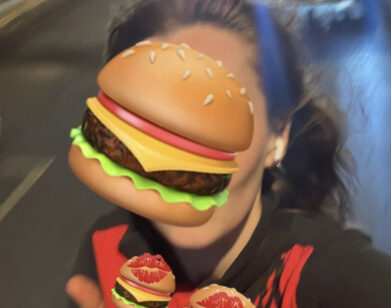Yes Chef!
Jeremy Allen White on Hunger, Thirst, and Life After The Bear
If you’ve spent any time on Twitter these last few weeks, you’ve definitely seen that image of Jeremy Allen White, a frenzied look painted across his face, tattoos sprawled across his arms, his bushel of curly brown hair pushed back behind his brow. Until now, the 31-year-old actor was known mostly as Lip Gallagher on the long-running show Shameless, but thanks to his magnetic lead performance on FX’s surprise summer hit The Bear, White has become an object of both fascination and obsession. As Carmen “Carmy” Berzatto, a world-class chef returning home to Chicago to run his brother’s sandwich shop in the wake of his death, White’s performance offers a study in contradictions: an ultra-confident chef who constantly doubts himself and a kind soul prone to fits of rage. As for the show itself, which was just renewed for a no-brainer second season, it is as claustrophobic and panic-inducing as is it engrossing, side-stepping sterile portrayals of back-of-house restaurant dynamics and offering something gritty, frantic, and, if you’ve worked in the food service industry, relatable. White, clearly still beaming from his show’s current hold on the zeitgeist, recently sat down with us to discuss his preparation for the role, the Carmy thirst, and why his experience in the kitchen is forever changed.
———
JEREMY ALLEN WHITE: Hey, Jackson.
JACKSON WALD: How’s it going?
WHITE: Good.
WALD: I was wondering how you got first introduced to the role of Carmy and what was the process like for preparing for it?
WHITE: A couple years ago I did a movie called The Rental that Chris Storer, who’s the creator of The Bear, produced. We really got along; we had really similar tastes and I just liked him. He reached out to me, maybe 18 months ago now, just to talk about this script that he’d been working on. I was finishing the last season of Shameless, which I’d been doing for a really long time. So I wasn’t really sure what I wanted to get up to next, but I love Chris and I really loved the pilot. And then I started to do some research. I picked up Marco Pierre White’s book. I finished Anthony Bourdain’s book, Kitchen Confidential and I got really fascinated with the [culinary] world. And my heart really broke for Carmy. You’re meeting him at the most traumatic period in his life, and he just seemed so incredibly alone. His identity was so wrapped up in his profession as a chef and everything was riding on his success. If he failed, I really feel like Carmy felt that he was going to die. And if he succeeded, I really felt like Carmy felt he would have all this glory. So it was a really good place to start with a character. And then the preparation I did was pretty extensive. I did two weeks at a culinary school in Pasadena. I spent a day at Republique, which is a really wonderful restaurant in Los Angeles on La Brea. And then I spent on and off for about six weeks at a French bistro called Pasjoli, which is in Santa Monica. And chef [Dave] Beran really was super supportive—he also got his start in Chicago—so it felt very fitting that I’d be learning from him. I started there just as a fly on the wall, then doing some prep with them during the day. And by the end, I was on the line. I was cooking food that was being served.
WALD: At culinary school or during your time actually working in a kitchen, were you ever just like, “Fuck, what have I just gotten myself into?”
WHITE: Yeah. For the most part, when I was in culinary school, I was working with Ayo who plays Sydney on the show. And that’s how we got to know one another, through the process of learning to cook. For most of the time, it was one chef, Ayo and I, so it all felt very manageable because he was really holding our hands. But then on Friday, he put us into a class with all these people who had been in school. It’s a six-month, pretty serious program. And we were just doing a crash course. It was incredibly overwhelming. I felt like I was responsible for how these other students were going to be formed. And then once I got into Pasjoli, I got pushed onto the line. I don’t think I would’ve ever had the confidence to actually step up and start cooking food, but chef Dave Brand gave me the nudge.
WALD: Have you seen the film Boiling Point with Stephen Graham?
WHITE: I did. I really enjoyed it. I’m grateful I watched it after we finished the show because Stephen Graham was so excellent. I’m sure I would’ve tried to do some sort of imitation. He’s one of our best.
WALD: If you look at the state of food television right now, it’s a lot of very palatable food shows, like The Great British Baking Show, for example. This show, compared to those, is radically different. It introduces a viewer to a new side of cooking and restaurant life.
WHITE: Yeah. Before we even shot the pilot, I was getting together with Chris, and our goal was to make the show as honest as possible to the experiences of back of house. We were like, “If we can be successful in that and if industry people watch it and it rings true to them, then that’s success in itself.”
WALD: I wanted to let you know, that apart from working at Interview, I’m a host at a restaurant in Brooklyn called Cozy Royale. One of the chefs watched the show, and he said that you eat for free and are always free to work in the kitchen whenever you want. Have you spoken to any chefs or people in the culinary world since the release of the show, and have they given you any compliments on your verbiage?
WHITE: Oh man. That’s so nice. I’ve gotten some feedback from industry folks and it’s been mostly very positive and it really means the most. I was texting with Dave Brand, who was chef at Pasjoli where I spent my time, and he really appreciated all the nods, like the green tape, which is Thomas Keller, and obviously all the language being correct. And also, what was really important to me and what I’ve heard a lot about is that there’s a certain movement in the kitchen. There is a choreography, there’s a bit of a dance. No matter your size in the kitchen, because you’re in a very small place, there’s a grace about the way that you move. I knew I would never be as good a chef as Carmy because that time and sacrifice is so intense, but I knew that I could try to fake that movement as best as I could. And I have heard back from chefs that I was moving correctly, always moving forward and moving with grace, which was a really big compliment.
WALD: It’s interesting you mentioned movement because the show itself feels like it never stops moving. It’s almost claustrophobic. The viewer themselves feels like they’re in this tiny, condensed kitchen right up in Carmy’s face half the time.
WHITE: Totally. That was all by design. Obviously, the first episode moves very, very quickly. We didn’t want to give the audience too much time to acclimate. We didn’t want to give them too much exposition. We wanted the audience to just land with Carmy and with the other characters in the world. The camera work, obviously the tight space of the kitchen, these tight shots and these long shots, all added to this sense of, not dread, but anxiety and urgency, which is a big theme throughout the show.
WALD: During the filming, it’s obviously so hectic—you’re screaming out, barking instructions, chopping food — did you ever lose yourself and become so enveloped with the moment that it transcended the line between acting and reality?
WHITE: Actors talk about it a lot, but a prop is your friend. And, cooking in the kitchen so much in the show, I can’t speak for everybody, but for me, it made everything else seem a lot more natural. Like we belonged there, and the words came out easier. You don’t have as much time to think about your lines, because you’re thinking about your actions. And then, in episode seven, which was a single shot, that’s the best. You can get totally lost because you’re in the moment so consistently. You’re not hearing, “Cut.” There’s no more setups. We don’t have to wait for lighting. You can just dive in and ride it out. I think everybody got a little lost. I think that’s what most actors are chasing in front of the camera or on stage. To get a little bit lost.
WALD: I was wondering if you were aware of the recent online thirst for Carmy, and all the viral tweets about him and his sex appeal.
WHITE: Yeah. I’m not on Twitter, but everybody else on the show is, and we have a group text. So yes, Ebon [Moss-Bachrach] and Lionel [Boyce] and Ayo [Edebiri] and everybody have brought that to my attention. It’s embarrassing for me, but I understand. I don’t know. Chefs are hot. I like chefs—I think they’re cool as shit. There’s something attractive about anybody who’s incredibly gifted at any skill. And I think determination is also incredibly attractive. And Carmy is certainly on a mission, even if he’s uncertain of what exactly that mission is.
WALD: What was the transition like from being on Shameless for over 10 years to entering a new environment, with similar parameters and objectives, but different people and a different role?
WHITE: What was a real gift about The Bear is that it was exciting to dive into a new world, which, while there are parallels— it and Shameless are both is in the city of Chicago, and Chicago plays a big character—to dive into the culinary world and learn a character through this skill that’s so important to the story, was really exciting. I’ve never practiced a skill this much for a role before. I felt like I was stepping out of my comfort zone and getting out of my own way a little bit by diving into that fully. But then once you’re on set—I love the whole cast and crew on Shameless and I’m so grateful for that experience— but you get swept up. It’s a whole different group, it’s a whole different mission. Everybody wants their art to be good, but the mission and how you get there is a little bit different.
WALD: Is there anything tangible that you’ve learned from this experience that will now fundamentally alter your dining and cooking experience?
WHITE: I’ve always had a lot of respect for chefs and the art of cooking, but my respect has only grown exponentially. The commitment and the sacrifice of time is so daunting. I don’t think I quite understood that until I started studying this world a year ago when I started working on prepping the project. I look at every kitchen now as kind of a miracle. It is so difficult, especially in cities like New York and Los Angeles, where there are new restaurants popping up all the time. It’s really hard to be consistent.
WALD: Do you ever find yourself walking around your house and yelling out “Corner” every time you’re turning a corner?
WHITE: I do. I also do a lot of “behind” talk. When I was in prep, whenever I was in the kitchen at our house and if my wife or my kids were running around, I would find myself yelling, “Behind, behind.” And also, “Heard.”
WALD: I text all my friends now, and whenever they text me something and I don’t have the energy to respond, I just say, “Heard.”
WHITE: Heard, for sure. It’s better than just liking a text.
WALD: Exactly. Yeah. I appreciate you taking the time to chat with me.
WHITE: Of course.

